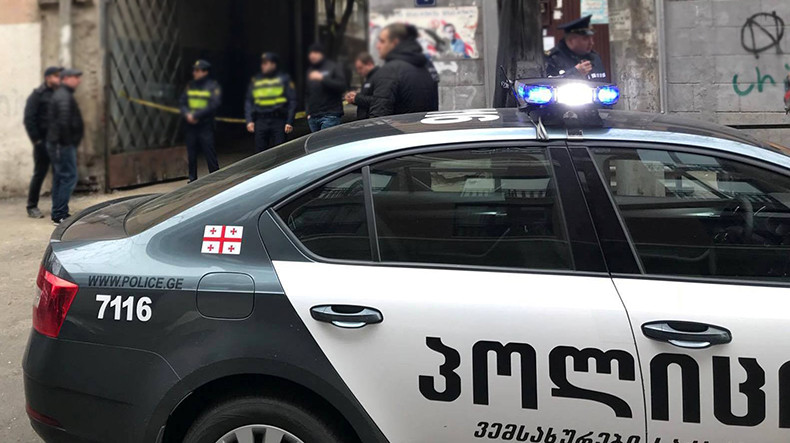
Six Ukrainians detained in Tbilisi amid protests
Georgian authorities say they have detained six Ukrainians and a Georgian citizen on weapons possession charges during opposition protests over a presidential election won by Salome Zurabishvili, the ruling party-backed candidate, according to RFE/RL.
In a statement on December 2, the day of the protests, the Interior Ministry said the seven were detained at a Tbilisi hotel on suspicion of illegally obtaining and possessing weapons and explosives.
It said the ministry and the State Security Service were trying to determine whether the suspects had anything to do with the opposition protests in the capital.
Thousands of people protested, alleging fraud in the November 28 runoff election between Zurabishvili, an independent who was backed by the ruling Georgian Dream party, and Grigol Vashadze.
Vashadze was nominated by opposition groups led by the United National Movement, which was founded by former President Mikheil Saakashvili, who was a regional governor in Ukraine in 2015-16 and has many supporters there.
The chief of Ukraine's Socialist Party, Illya Kyva, wrote on Facebook on December 2 that lawmaker Semen Semenchenko of Samopomich (Self-Reliance) party was with the six Ukrainians but has a diplomatic passport and was not detained.
Semenchenko wrote on Facebook on December 3 that the detained Ukrainians had nothing to do with protests in Georgia. He said that he and his wife are in Tbilisi and are working with lawyers to secure the release of the Ukrainians from custody. He said they have not been formally charged.
Saakashvili, who was president of Georgia from 2004-13, lost his Georgian citizenship in 2015 when he accepted Ukrainian citizenship in connection with his appointment by President Petro Poroshenko as governor of the Odesa region.
He resigned that position in November 2016, complaining of rampant corruption, and has become an ardent opponent of Poroshenko.
Saakashvili led anti-government and anticorruption street protests in Ukraine in 2017 before he was forced to leave the country.
In July, a court in Tbilisi sentenced Saakashvili to six years in prison in absentia after convicting him of ordering law enforcement officers to beat up a lawmaker in 2005.
In January, Saakashvili was sentenced in absentia to three years in prison after being convicted of trying to cover up evidence about the 2006 killing of a Georgian banker.
The former president, who now lives in the Netherlands, has rejected all the charges, calling them politically motivated.
Newsfeed
Videos






























